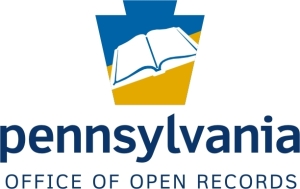 The report released today by the Legislative Budget and Finance Committee entitled “Costs to Implement the Right-to-Know Law” includes eight recommendations, four for the General Assembly and four for the OOR.
The report released today by the Legislative Budget and Finance Committee entitled “Costs to Implement the Right-to-Know Law” includes eight recommendations, four for the General Assembly and four for the OOR.
I support all eight recommendations (one, as noted below, with some reservations). In more detail:
LBFC Recommendations for the General Assembly
Recommendation: Require agencies to provide AORO contact information to include name, telephone number, email address, and physical address to the OOR annually or whenever there is a change in the information.
Response: The OOR currently collects this information on a very informal basis. However, a statutory mandate for agencies to provide AORO contact information to the OOR, combined with technological improvements already in development (i.e., an online AORO database), would allow us to proceed in a far more efficient manner.
Recommendation: Require agencies to prominently post required RTKL information on their websites and specifically define AORO contact information to include the name, telephone number, email address, and physical address of the AORO.
Response: Like LBFC, the OOR has found that it can sometimes be difficult or impossible to locate AORO information on an agency website. In addition to supporting a new statutory requirement that the information be “prominently” posted, the OOR will continue to emphasize this as a best practice in our training.
Recommendation: Require all state and local government AOROs to attend one OOR training course on the RTKL annually, which could be attended on-site or online.
Response: The OOR recently moved to a new office on the 16th floor of 333 Market St. One of the benefits of the new space is that we have an on-site training room where we will be able to conduct regular free training sessions. We will also be able to offer free training via webinars in the relatively near future. Should the RTKL be changed to require all AOROs to attend at least one OOR training course annually, we will be well-positioned to make such courses easily accessible across the state.
Recommendation: Specifically authorize OOR to establish reasonable hourly fees as they determine necessary for commercial and/or other exceedingly time-consuming requests as is done in other states (e.g., request(s) from an individual requester that requires over 5 to 10 hours to fulfill over a 30-day period).
Response: As stated above, I agree that a new fee schedule is appropriate for commercial requesters. I am ambivalent about allowing fees for non-commercial requests which require more than a certain amount of time to process. It’s easy to see the agency side of that equation. However, we should not forget that in some (but certainly not all) cases the reason it takes so long to process a request is that the agency could have done a better job of organizing its records in the first place. I would recommend splitting these two ideas and pursuing a commercial requester fee schedule during the current legislative session, leaving the non-commercial issue for discussion at a future time when we have more data available to better analyze the need.
LBFC Recommendations for the OOR
Recommendation: Create a searchable database on their website for the contact information for all state and local government AOROs and update it as new contact information is provided by the agencies.
Response: As mentioned briefly above, the OOR – with the extremely capable assistance of the Legislative Data Processing Center – is in the process of creating a searchable AORO database which will be housed on our website and will be updated as new information is received. This should be available by June 2018.
Recommendation: Develop training and informational materials to reach out to all AOROs (using the updated AORO contact list) to provide ongoing training on the RTKL.
Response: We will use the contact information in the AORO database to ensure that all registered AOROs are made aware of training opportunities, both online and on-site.
Recommendation: Develop and post training videos and informational materials directed at requesters.
Response: Being able to provide online training will greatly enhance our ability to reach requesters. By their nature, requesters tend to be harder to reach as a group than agencies. We have provided training at various media companies across the state, but online training is clearly the best way to reach requesters.
Recommendation: Annually collect data from AOROs on the number of RTKL requests received each year to monitor for any significant changes in trends.
Response: The OOR plans to start annual data collection in January 2019, looking back at the previous calendar year on an annual basis. Because both the OOR and LBFC have surveyed AOROs in the recent past, we currently do not plan to conduct such a survey this year.
NOTE: My responses to these recommendations were also included in a February 12, 2018, letter to LBFC, which appeared as Appendix C in the report.
I got mail from Chief Disciplinary counsel
Pa Judical Center.
It has papers for me to file
To the Disciplinary Board of The
Supreme Court of Pennsylania
Complaint Board .
And i dont know what or how to get the help i need .I filed for the RTK i reached out in good faith in person to inquire about my request i submitied on july 2 i was informed the commisoner was out of town and would be informed of rtk i then recived postage dated on 17 july to my request but paper was back dated to july 6 giving no time to file motion wihin 15 days
LikeLike
Hello. Please send your question to openrecords@pa.gov and we will review.
LikeLike